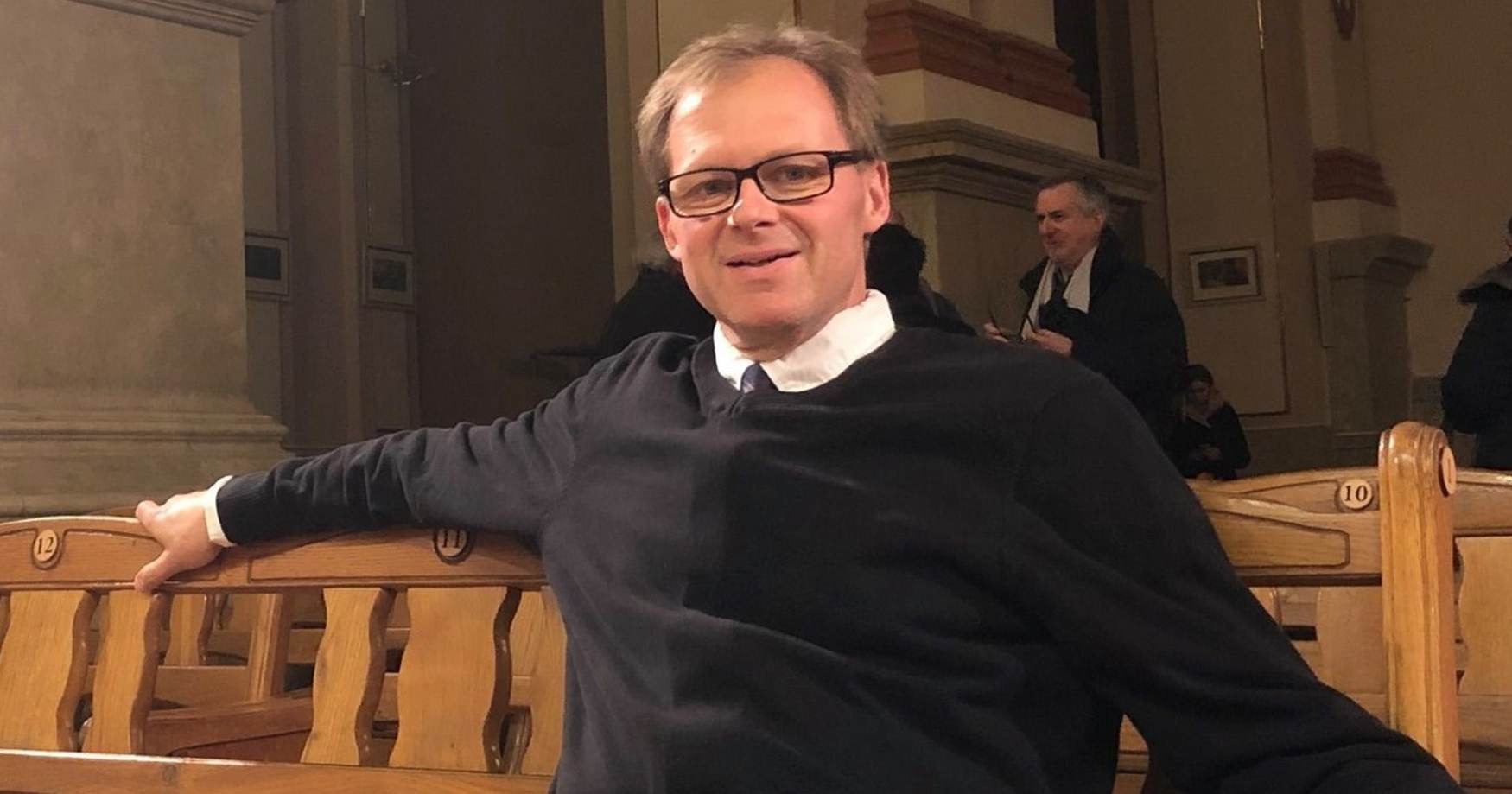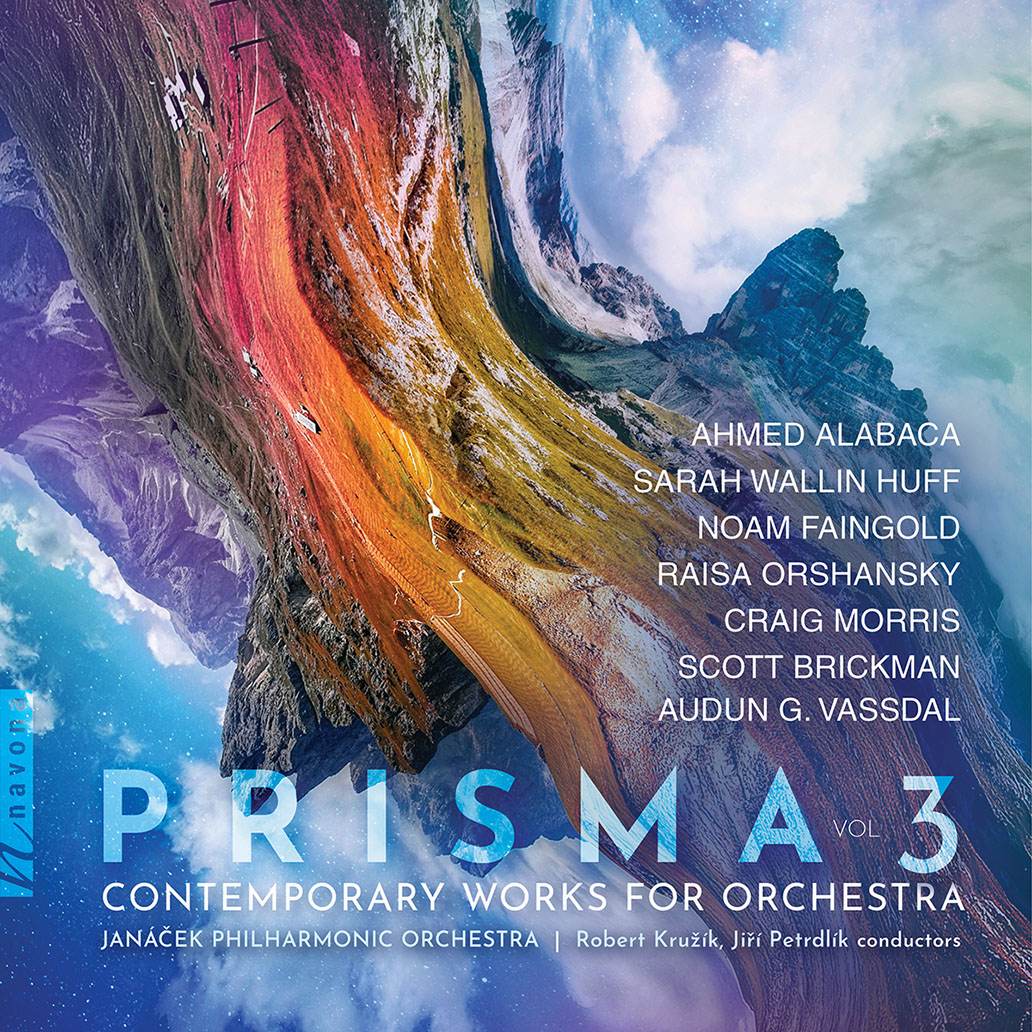
Featuring the works of seven composers, including Scott Brickman, PRISMA VOL. 3 follows up the success of the first two PRISMA installments with symphonic music that is both innovative and deeply alluring. Scott describes his piece Restoration as a “symphony in one movement”; the music, with its flirting allusions to Eastern European folk songs, celebrates Brickman’s Latvian and Polish heritage.
Today, Scott is our featured artist in “The Inside Story,” a blog series exploring the inner workings and personalities of our composers and performers. Read on to discover how this American gains inspiration from these European locales…
What was your most unusual performance?
My Most unusual performance happened in Minsk, Belarus, in November of 2018. The performance was of my Fraski (2018) for clarinet, violin, viola and ‘cello. The performance itself was not unusual, but the venue was. The venue was the Zair Azgur Memorial Art Studio. Azgur was a sculptor who was alive during the Soviet times and made his living by producing statues of communist figures. The performance was in one of Azgur’s studios hosing large statues of Marx, Lenin, Stalin, Khruschev, etc. Happily, I both had an awesome performance and lived to tell about this experience.
If you could make a living at any job in the world, what would that job be?
It’s a cliché, but there are clichés for a reason; I’d love to make my living as a composer. Composing full time is actually much more difficult than I thought, or at least the transition has been. The idea of being a full-time composer is one many of us aspire to, and, like many my day job of teaching has previously not allowed me to pursue that. With every crisis there is an opportunity, and now with both the changes in Higher Education at the National Level in the USA and within my University System, I am able to devote much more of my time to composition. I’m not quite a full-time composer, but I’m close! I have to remind myself that composition work is with a capital “C”. Activities such as editing, promotion, networking, etc. those are all “composition” activities to me. Additionally, score study, active listening, and also using your imagination like a child – dreaming; to me, those are vital activities in the composition sphere.
If you could spend creative time anywhere in the world, where would it be and why?
My “happy place” is Central and Eastern Europe and the Baltic States; Poland, Latvia, Lithuania, Ukraine. I particularly Love Krakow and Riga. L’viv and Vilnius are a close second. Krakow and Riga could easily become home primarily because of my Polish and Latvian ancestry, along with my recent efforts to acquire their languages. In 2018 I started my formal study of the Latvian Language. When I am in either Riga’s Central Market or Krakow’s Main Square, it’s as if I’m having a transcendental experience. I can feel these places, their sights, smells, the aura. These are my people, I get their ways, and, because of this, the music I write there seems to have a magic about it.
What fuels me most creatively about these places is their culture, artistic and otherwise. It’s not necessarily that I receive more respect and acceptance there, though I feel as if I do, as much as it is that I do clearly receive it as opposed to in the USA. Additionally, I find the attitudes of European musicians and audiences much more congruent to mine than USA folks. Not only are these my ancestral people, but these are my music people.
What was your favorite musical moment on the album?
Obviously I’m happy and proud of my piece, but there are four moments that stand out: The first orchestral tutti at ca. 0:36, the string music ca. 1:00, which is a non-quotation reference to Ashkenazi music, the raucous section at 7:50, and the finale at 10 min. Going back to a previous question, some of these very moments were conceived, sketched and/or written in part in those happy places of mine, Krakow, Riga, L’viv and Vilnius.
What does this album mean to you personally?
This was a fantastic experience of which I am very pleased.
Life is good, the future looks great and I can’t wait until my next PARMA recording.

PRISMA VOL. 3 featuring Restoration by Scott Brickman is now available to stream or purchase through Navona Records. Click here to explore this new album.

Scott Brickman (b. 1963, Oak Park IL) is passionate about sports, his Baltic and Slavic ancestry, and culture. He loves traveling through Central, Eastern, Northern Europe, and Canada, which is a mere kilometer from where he currently lives.
Currently he is Professor of Music and Education at the University of Maine at Fort Kent where he has taught since 1997. Though scholarship has not been the focus of his activities, he recently presented papers on set theory, jazz history, and music education in Strasbourg, France, Lviv, Ukraine, and Liepaja, Latvia respectively. His orchestral music has been performed and recorded by ensembles in Croatia, Czechia, Moldova, Poland, and Ukraine.
